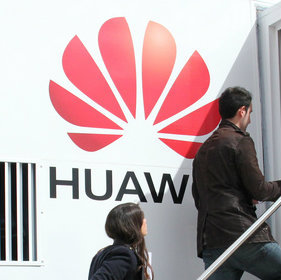Huawei has been telling the FCC why operators and consumers will suffer if it's not allowed to trade in the US as part of the universal service fund (USF) program.
October 3, 2018

Despite being shown various "Not welcome here" signs by the country's ruling authorities, Huawei hasn't given up on the US market. The Chinese vendor has met with the FCC in an effort to persuade the Commission that network operators should not be banned from spending universal service fund (USF) money on its technology.
Earlier this year, the Federal Communications Commission (FCC) issued a Notice of Proposed Rulemaking (NPRM) titled Protecting Against National Security Threats to the Communications Supply Chain Through FCC Programs, which laid out a proposal on "a targeted rule to ensure that Universal Service Fund (USF) funding is not spent on equipment or services from suppliers that pose a national security threat to the integrity of communications networks or the communications supply chain."
The problem for Huawei Technologies Co. Ltd is that it, along with its Chinese peer ZTE and other specific vendors, is deemed a security threat by the US government. (See US Government Agencies Barred From Buying Huawei, ZTE Tech.)
So a team of Huawei executives and lawyers met with the FCC last week to put its case, asking the Commission to "consider the substantial costs of the NPRM, in particular its impact on carriers in rural and remote areas, many of whom are attracted to Huawei as a result of Huawei's commitment to affordable, quality products and attentive customer service." In essence, Huawei's pitch is that, without it, small rural operators will get less bang for their buck, as they'll be charged far more for technology products by alternative infrastructure vendors, and some will probably go out of business if they can't source their gear from Huawei.
You can read Huawei's note, outlining its pitch to the FCC, here.
The move comes as Huawei is scrambling to protect its interests in a number of global markets, where security concerns are being highlighted as 5G plans are developed and implemented. (See Australia Excludes Huawei, ZTE From 5G Rollouts, India Joins US & Australia to Give Huawei, ZTE 5G Cold Shoulder – Reports and Could Japan Also Bar Huawei, ZTE?)
That trend has resulted in some statements and media briefings that the vendor will regard as positive, with recent examples coming from Canada and New Zealand.
— Ray Le Maistre, Editor-in-Chief, Light Reading
Read more about:
AsiaYou May Also Like









